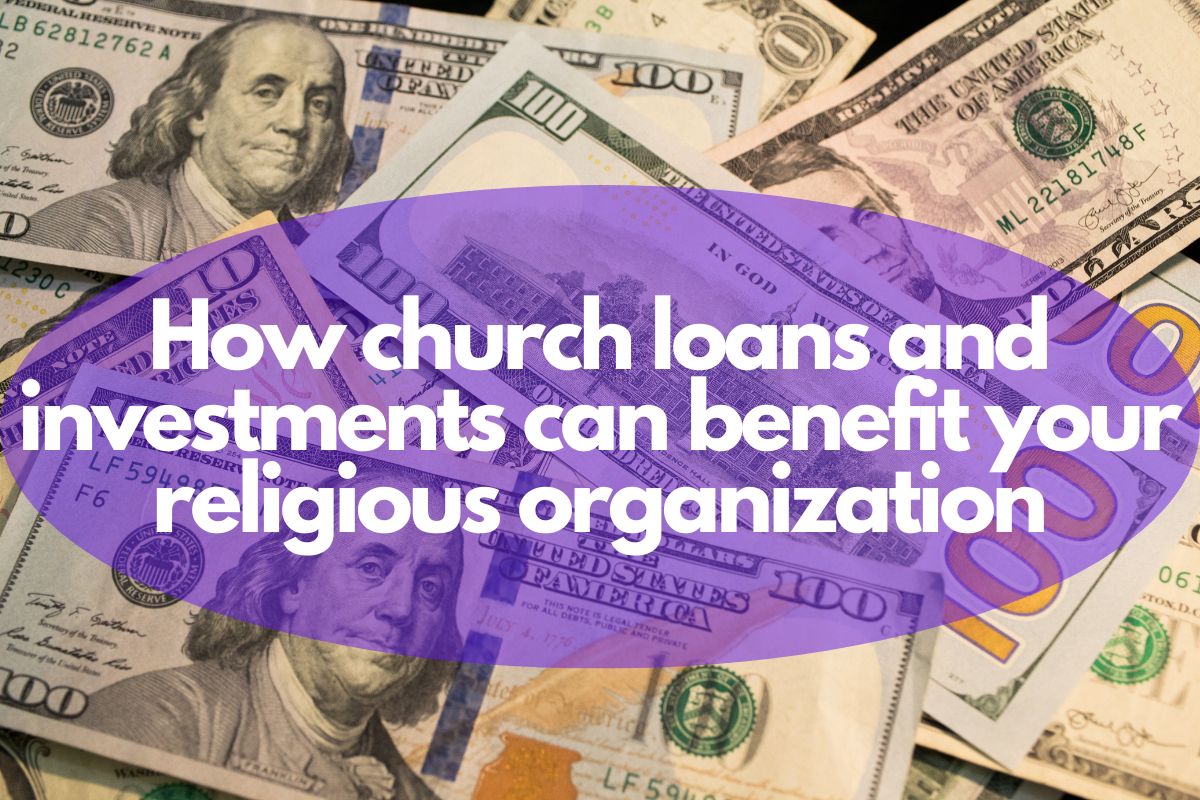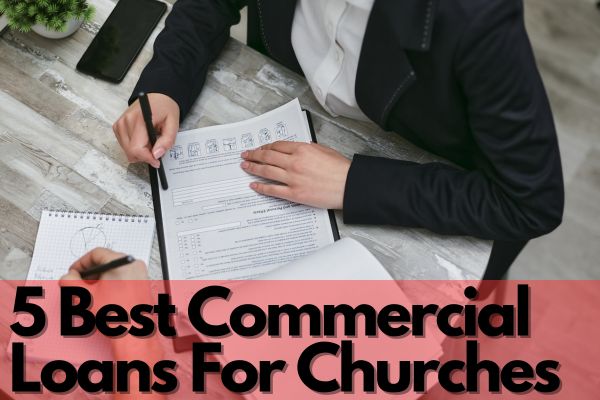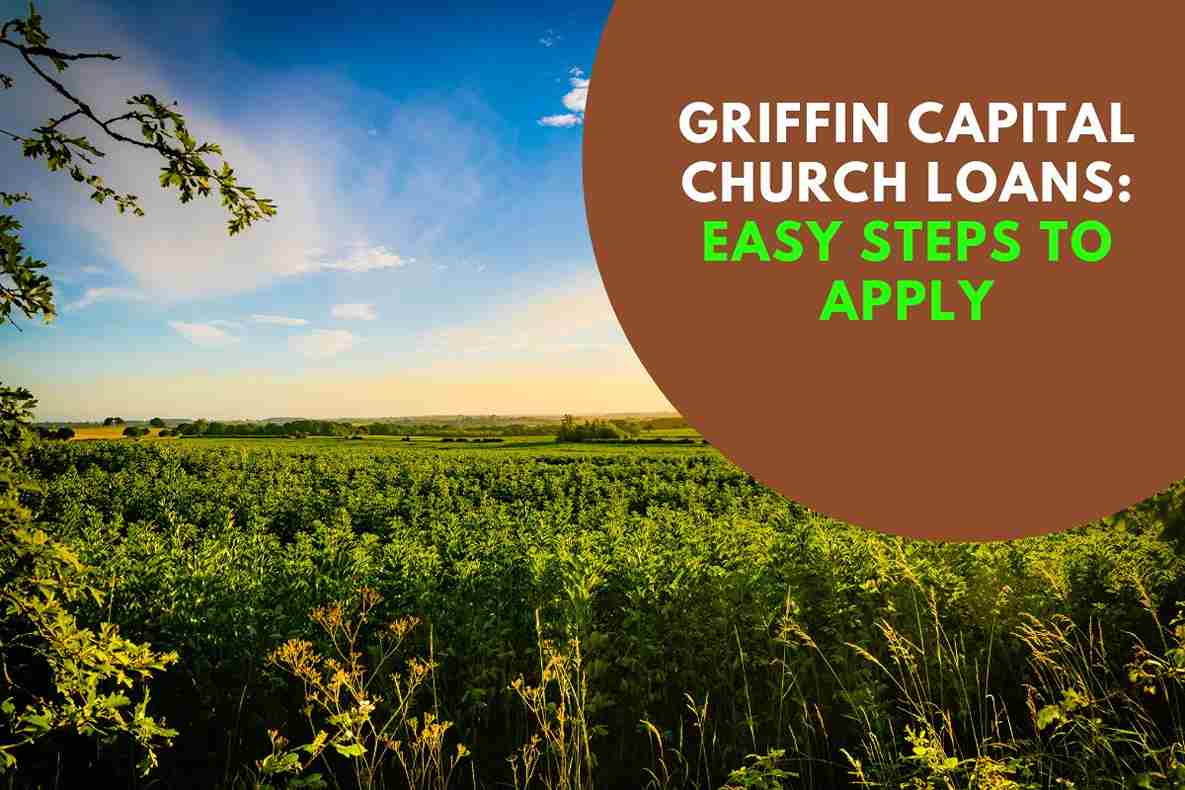Church loans for buildings are critical to building and maintaining a place of worship. A church building is not only a physical space for religious gatherings, but it also serves as a hub for the community.
However, constructing, repairing, or upgrading a church building requires significant funding, and that’s where church loans come into play. As a result, finding the best church loans for buildings is essential to ensure that the congregation has a safe and welcoming place to worship.
This article will delve into the 15 best church loans for buildings, providing details on interest rates, loan terms, eligibility criteria, and more.
Whether you’re a small community church or a large congregation, this guide will help you find the perfect loan for your church building needs.
15 Best Church Loans For Buildings
Here are 15 of the best church loans for buildings, listed in no particular order. Each loan offers unique terms and features, so it’s important to compare them to find the best one for your church’s needs.
1. Thrivent Church Financing
Offers construction loans, refinancing, and renovation loans with competitive interest rates and flexible repayment terms.
2. BB&T Church Financing
Provides loans for new construction, renovations, and equipment financing with low down payments and fixed or adjustable rates.
3. Truist Church Financing
Offers a range of financing options, including construction loans, refinancing, and equipment financing, with competitive rates and flexible terms.
4. Church Extension Plan
Provides loans for new construction, renovations, and refinancing with low rates and flexible repayment terms.
5. Bank Of America Church Financing
Offers loans for new construction, renovations, and equipment financing with flexible terms and competitive interest rates.
6. Catholic Order Of Foresters
Provides loans for Catholic churches for new construction, renovations, and refinancing with low rates and flexible terms.
7. Fellowship One Church Financing
Offers loans for new construction, renovations, and refinancing with competitive rates and flexible terms.
8. Evangelical Christian Credit Union
Provides loans for new construction, renovations, and refinancing with low rates and flexible repayment terms.
9. Lutheran Church Extension Fund
Offers loans for new construction, renovations, and refinancing with competitive rates and flexible repayment terms.
10. United Methodist Development Fund
Provides loans for new construction, renovations, and refinancing with low rates and flexible repayment terms.
11. Church Building Fund
Offers loans for new construction, renovations, and refinancing with competitive rates and flexible terms.
12. Church Loan Specialists
Provides loans for new construction, renovations, and refinancing with competitive rates and flexible repayment terms.
13. Christian Community Credit Union
Offers loans for new construction, renovations, and refinancing with low rates and flexible repayment terms.
14. Capstone Church Financing
Provides loans for new construction, renovations, and refinancing with competitive rates and flexible repayment terms.
15. National Cooperative Bank
Offers loans for new construction, renovations, and refinancing with competitive rates and flexible repayment terms specifically designed for faith-based organizations.
Researching and comparing these options is important to find the best church loan for your specific needs and financial situation.
Benefits Of Church Loans For Buildings
Church loans for buildings can provide several benefits, including:
1. Funding For Construction
Church loans for buildings can provide the necessary funding for constructing a new church building or expanding an existing one. This can help the church to serve its congregation and community better.
2. Repairs And Renovations
Church buildings may require repairs or renovations to maintain their safety and functionality over time.
Church loans can provide the necessary funding to make these improvements, ensuring that the building remains a safe and welcoming space for worship.
3. Lower Interest Rates
Church loans for buildings often come with lower interest rates compared to other types of loans, making them a more affordable financing option for churches.
4. Flexible Repayment Terms
Church loans can offer flexible repayment terms, allowing churches to choose a repayment schedule that works best for their budget and financial situation.
5. Support From Lenders
Many lenders that offer church loans for buildings have experience working with churches and understand their unique needs and challenges. They can provide guidance and support throughout the loan application and repayment process.
6. Improved Community Outreach
Church buildings can play an essential role in community outreach by providing a safe and welcoming space for worship.
Investing in a church building through a loan can help the church to serve its community better and expand its outreach efforts.
Overall, church loans for buildings can provide the necessary funding for constructing or renovating a church building while offering affordable financing options and flexible repayment terms.
These benefits can help churches better serve their congregation and community while improving their financial stability.
Eligibility Criteria To Get A Church Loan For Building
The eligibility criteria for obtaining a church loan for a building can vary depending on the lender and the specific loan program.
However, here are some general eligibility criteria that most lenders will consider:
1. Church Status
Generally, lenders require that the borrower is a recognized and registered religious organization, such as a church, synagogue, or mosque. The organization should have a clear mission statement and demonstrate a commitment to serving its community.
2. Creditworthiness
Lenders will consider the creditworthiness of the church, including its credit history, financial statements, and cash flow.
They may require certain financial stability and liquidity to ensure the church can repay the loan.
3. Collateral
Lenders may require collateral to secure the loan, such as the church building or other assets owned by the organization.
4. Membership Size
Some lenders may require a minimum number of members in the congregation to qualify for the loan, as a larger congregation may indicate greater financial stability and community support.
5. Building Plans
Lenders may require detailed plans and cost estimates for the building project, including architectural drawings, construction contracts, and materials costs.
6. Insurance
Lenders may require the church to carry certain types of insurance, such as property or liability insurance, to protect their investment in the building.
7. Legal Documentation
Lenders may require legal documentation, such as a deed of trust or mortgage, to secure the loan and ensure that the lender has a legal claim on the property in case of default.
It’s important to note that eligibility criteria vary widely between lenders and loan programs, so it’s essential to research and compares loan options to find the one that best fits your church’s needs and eligibility requirements.
Benefits Of Applying For A Building Loan
1. Increased Capacity
A church building loan can help your church expand its capacity to accommodate more members and visitors.
2. Improved Facilities
A church building loan can help fund renovations and upgrades to your existing facilities, making them more comfortable, attractive, and functional.
3. Better Technology
A church building loan can help your church invest in technology, such as sound and lighting equipment, that can enhance your worship services and events.
4. Attract New Members
A church building loan can help your church create a more welcoming and attractive environment, which can help you attract new members and retain existing ones.
5. Generate Revenue
A church building loan can help your church create new revenue streams, such as renting out your facilities for weddings, events, and other activities.
6. Foster Community
A church building loan can help your church create new spaces for community activities and events, fostering a stronger sense of community among members.
7. Expand Outreach
A church building loan can help your church expand its outreach programs and services to better serve your community’s needs.
8. Increase Donations
A church building loan can help your church create a more inviting and inspiring environment, encouraging increased giving from members and donors.
9. Improve Energy Efficiency
A church building loan can help your church make energy-efficient upgrades to your facilities, saving money on utility bills and reducing your environmental impact.
10. Preserve Historic Buildings
A church building loan can help your church preserve and restore historic buildings, which can be important landmarks in your community.
Pros Of Applying For A Church Building Loan
1. Allows For Expansion
A church building loan can provide the funds needed to expand or improve the church’s physical facilities, allowing it to serve its congregation and community better.
2. Enables Long-Term Planning
With a church building loan, a church can plan for the future more confidently, knowing it has the financial resources to undertake significant capital projects.
3. Provides Affordable Financing
Church-building loans typically have lower interest rates than other forms of commercial financing, making them an affordable option for churches that need to borrow money.
4. Builds Equity
As the church pays down its loan, it builds equity in its property, which can be used for future borrowing or other purposes.
5. Strengthens Financial Position
A church building loan can strengthen the financial position of a church, providing a stable source of funding for long-term capital projects.
6. Enhances Outreach
With improved facilities, a church can more effectively reach out to the community and attract new members, expanding its mission and impact.
7. Fosters Stewardship
A church building loan can encourage members to contribute to the church’s capital campaign or other fundraising efforts, fostering a stewardship and community involvement culture.
Cons Of Applying For A Church Building Loan
While there are many benefits to applying for a church building loan, churches should consider some potential drawbacks. Here are some cons of applying for a church building loan:
1. Debt Burden
A church building loan can create a significant debt burden for the church, limiting its financial flexibility and making it difficult to fund other projects or initiatives.
2. Interest Costs
Church building loans often come with interest costs, which can add up over time and increase the project’s overall cost.
3. Risk Of Default
If a church cannot make its loan payments, it may risk defaulting on the loan, which can lead to penalties, legal action, and damage to the church’s credit rating.
4. Lengthy Application Process
Applying for a church building loan can be lengthy and complex, requiring detailed financial and project plans and extensive documentation.
5. Approval Requirements
Church building loans may have specific approval requirements, such as a certain level of congregational support or a minimum credit score, which can limit access to financing for some churches.
6. Financial Constraints
Taking on a church building loan may limit a church’s ability to fund other projects or initiatives, significantly constraining its mission and activities.
7. Maintenance Costs
A new or renovated facility will require ongoing maintenance and upkeep, which can add to the church’s operating costs and financial burden.
8. Market Risks
A church building loan may be subject to market risks, such as fluctuations in interest rates or changes in the local real estate market, which can impact the value and viability of the project.
Conclusion
Obtaining a church loan for a building can provide the necessary funding for constructing or renovating a church building while offering affordable financing options and flexible repayment terms.
However, eligibility criteria vary widely between lenders and loan programs, so it’s important to research and compare loan options to find the one that best fits your church’s needs and eligibility requirements.
By investing in a church building through a loan, churches can better serve their congregation and community while improving their financial stability.
With the right lender and loan program, a church can obtain the financing needed to create a safe, welcoming space for worship and community outreach.






